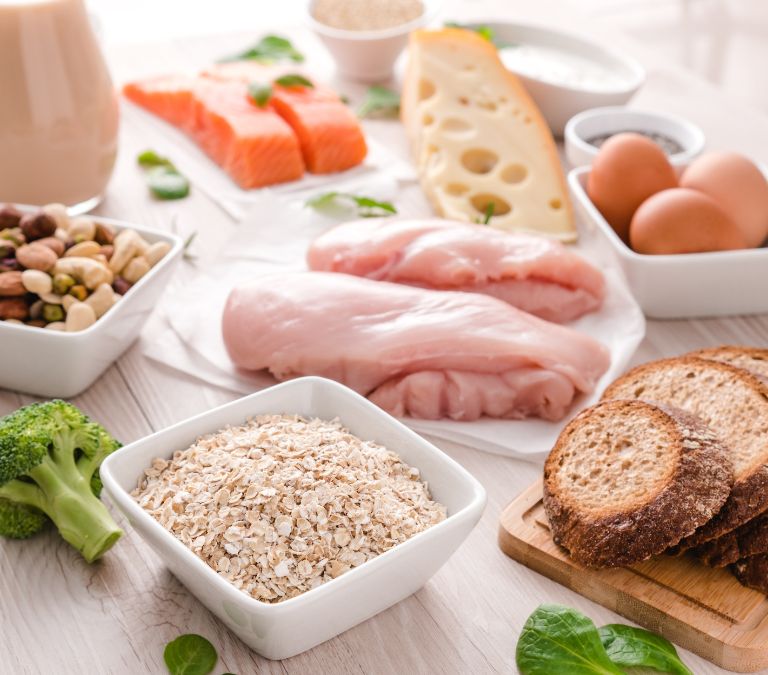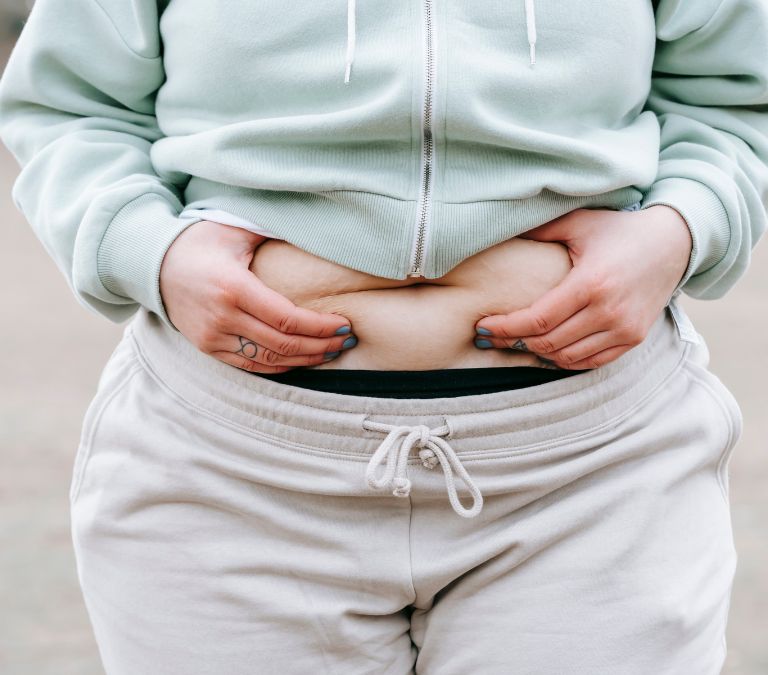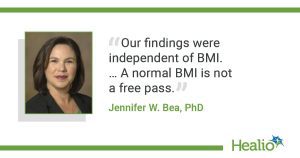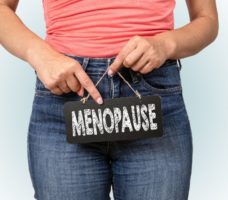As we move through the phases of our lives, our body is prone to changes. This is especially true for women. This is because their body undergoes certain physiological changes during their lifetime. For example, they see changes during puberty, pregnancy, and menopause.
One of the changes women undergo during menopause is weight gain. This weight gain tends to start during perimenopause and extend into menopause. It is concentrated around the middle region hence it is not a surprise many women are looking for how to lose menopause belly fat since most fat especially doing menopause is usually concentrated in the middle region of the body.
Why Most Women Get Belly Fat During Menopause

After puberty and during the reproductive years, weight gain was always concentrated on the hips, butt, and thighs, but hormonal changes that start during the perimenopause phase change this. During this stage, there is a decline in the level of estrogen secreted. Because estrogen is responsible for fat distribution to the lower part of the body, the fat will be forced to migrate to the middle region. This migration will cause an increase in the abdominal area.
During menopause, too, there is a decline in another hormone called progesterone. This decrease will lead to the elevation of cortisol levels. Cortisol is another hormone that leads to the development of the pendulous abdomen as menopause belly fat is fondly called.
Another reason why women get menopause belly fat is the lifestyle they choose to live which in turn affects their metabolism. As we age, we tend to become a bit more passive than when we were younger. As a result, we become more prone to aches and pains, making exercising more difficult. Our metabolism will also slow down as our foods take more time to be broken down in the body. These factors contribute to menopause belly fat gain.
It is easy to say that adding a few extra pounds isn’t something to worry about. It’s just fat, after all. Well, that is not necessarily the case. There are two types of fat to be found around the stomach region. First, we have the subcutaneous fat found under the skin which is considered dormant or inactive. Then there is the visceral fat. This fat goes deeper into the body and forms layers around your internal organs. It is implicated in health conditions like dementia, diabetes, stroke, cardiovascular diseases, and even some forms of cancer. Unfortunately, the latter is the type of fat that builds up in the stomach after menopause, making it very unhealthy.
How To Lose Menopause Belly Fat
Now that we know what is causing the increase you might notice in your middle region during menopause, let’s talk about how you can eliminate them. We have been told that we have to go through rigorous exercise regimens and strict dieting to lose weight. But as we age, this option looks less and less feasible. The good news is that you do not have to do 50 sets of push-ups to lose this weight.
This article looks at ten different ways you can combat and successfully reduce your belly fat during menopause.
- Take A Look At The Carbs You Consume

Let me start by debunking the myth that all types of carbs are not good for weight loss. It would help if you had an adequate supply of carbohydrates for the proper functioning of your body systems. It is considered an essential micronutrient.
However, the problem is in eating the wrong type of carbs. These are called refined carbs, and they are everywhere around us. Most of the food items we consider staple are refined carbs. Breakfast cereals, pasta, white bread, potato chips, pizza are all made up of refined/simple sugars that are easily broken down and absorbed into the bloodstream. These refined carbs have been implicated in the accumulation of belly fat. And since eating them only creates the urge to eat more, what you get is a cycle that continues viciously.
Another reason to decrease your consumption of refined sugars is the negative effect on hormones. Refined sugars contribute, to a great extent, to insulin and leptin resistance. There is a direct connection between leptin resistance and overfeeding. Therefore, you will overfeed if these refined sugars remain a major part of your diet.
While it is not necessary to eliminate carbohydrates from your diet to lose belly fat, you must cut out these simple/refined carbs and replace them with more complex options like sweet potatoes and whole-grain meals.
- Make Vegetables and Fibre-Rich Food a Major Part of Your Diet
During menopause, you need all the nutrients you can get. Vegetables are edible nutrient warehouses. They are packed with nutrients and the good kind too. Some vegetables like broccoli and cabbages are cruciferous and are therefore implicated in Diindolylmethane production (DIM). DIM is a chemical compound that is very active against the onset of hormone-dependent breast cancer. It also helps balance estrogen, and if you have been paying attention, you will remember that estrogen plays an important role in the distribution of fat. And because these vegetables are made of fibers, they are especially good for our intestines as they aid digestion and absorption of food nutrients.
Speaking of fiber, a healthy meal should contain an appropriate amount of soluble fiber. This type of fiber dissolves in water to form a substance that aids in the reduction of body glucose and cholesterol. This has been proven several times by research.
- Consume The Right Amount Of Healthy Fat
Like carbohydrates, there has been some bad PR around the consumption of fats. But, while there are fats that you should not consume, there are healthy fats that will benefit women going through menopause.
Fats are a source of essential fatty acids, a form of fat the body cannot produce. They are also important for the digestion of some nutrients, especially fat-soluble vitamins. Fats are also building blocks for hormones.
Include food rich in healthy fats and omega-3 essential acids in your diet. Foods like avocados, extra virgin olive oils, walnuts, and salmon are very good sources of healthy fats. You could never go wrong with them.
- You Can Never Go Wrong With Phytoestrogens
Phytoestrogens are plant-based compounds that are very similar in functionality to the estrogens produced by humans. If you consume foods rich in phytoestrogen, your body will act the same way it would if estrogen were present. Therefore we can consider consuming these compounds in our meals as hormone replacement therapy on a budget. They can accomplish some of the things that estrogen is capable of doing.
At the risk of sounding like a broken record, we would like to remind you that it has already been established that estrogen helps with the distribution of fat cells. Now during menopause, the levels of estrogen decrease. Therefore, consuming these phytoestrogens will aid the distribution of these fats much in the same way as estrogen would.
A bonus is that this compound has been implicated in relieving hot flashes, a very uncomfortable aspect of menopause. In addition, foods like soybeans, plums, flax seeds, tofu, and peanuts are very good sources of phytoestrogens.
- Consume Proteins
Food rich in protein has been proven to help stabilize blood sugars. It does this by reducing the absorption of carbs into the system. In doing this, they aid the weight loss process. Therefore, it is advised to include lean proteins like beans, peas, poultry, and lentils in your diet.
Proteins are also very good for building up muscles that displace fat. As you age, your muscle mass decreases, linked to the decline in estrogen seen during menopause. Consuming the right amount of protein will lead to an increase in muscle mass. You may want to check our earlier article on the benefits of protein to menopausal women.
- Hormone Balance is Important
This is a no-brainer. If you have read this point, you probably have figured out that hormones play a very important role in losing menopausal belly fat. Hormone imbalance is one of the major factors behind weight gain during menopause. One of the hallmarks of menopause is hormonal fluctuation. Therefore, we must try to maintain the hormones at a stable level. The most appropriate method is hormone replacement therapy, which attempts to replace the hormones reduced due to menopause.
You should also avoid pesticides and certain chemicals that are considered hormone disruptors.
- Stress Reduction and Sleep Should Be Prioritized

We hear the word “stress” daily. We struggle with it every day, and sometimes we do not overcome it. However, the need to fight and overcome stress becomes heightened with the onset of menopause. This is because with heightened stress levels come higher levels of some hormones known as stress hormones. For example, cortisol is a hormone that has been known to increase with increased stress levels. And one of the effects of cortisol is an increased mid-region.
It is, therefore, necessary that you find a way to reduce stress. You can go for long walks, do yoga, or even meditate. The key is to keep your mind as free from stress as possible.
Another important piece of advice would be to get enough sleep to reduce stress and improve your mental well-being. Lack of sleep will leave you stressed and cranky in the morning, leading to increased cortisol levels and stress eating. These are all factors that contribute to menopause belly fat which many people struggle to get rid of once they have it.
- Strength Training and Cardio Workouts
Strength training increases muscle mass and indirectly fuels metabolism. With a decline in age, it is very easy to lose muscle mass which is why it is a lot easier to gain weight and a lot harder to lose it as we get older. To curb excessive muscle loss and increase muscle build-up, it is advised that you take strength exercises seriously. Invest in a couple of dumbbells and get serious about bodyweight exercises like lunges, squats, and push-ups. They are not only good for maintaining muscle mass, but they also greatly contribute to the reduction of belly fat.
- Work on Your Core
While it is almost impossible to reduce body fats that are localized using exercises, you can target the fat around your belly by incorporating routines that strengthen your core into your general workout routine.
Routines like Russian twists, V-ups, sweeping scissors, crunches, and oblique burners are all excellent examples of workout routines that work towards strengthening your core. The good thing about this type of workout is that they do not need a lot of time, and you can slowly ease into it. You can do these exercises as a standalone workout, especially on days when you can’t afford the time needed for your full workout session. You can also use it to add to your strength or cardio workout. Another good thing about these routines is that they do not require equipment and expertise. So get twisting and turning and see how fast you get rid of that belly fat.
- Try HIIT
One of the workout routines that are very beneficial to women going through menopause and hoping to reduce the weight gain in their stomachs is HIIT. HIIT, or high-intensity interval training, is based on short bursts of intensity followed by active recovery periods of the same length or longer than the intensity periods. It entails a period of work followed by equal or even longer rest. The great thing about this workout routine is that it can be customized to meet your specific needs and objectives. Studies have shown that HIIT can be quite helpful in reducing the dangerous visceral fat that is usually seen in the abdominal region of women going through menopause.
In summary, gaining belly fat during menopause is not unheard of. However, as it is dangerous to let them sit there, relevant action must be taken to ensure that the belly fat is lost. With a proper commitment to some of the tips given here, you should be able to get rid of any stubborn stomach fat. However, remember that you might have to make some lifestyle changes, and consistency is needed if you are to succeed.
If it is proving difficult to lose this weight, then a visit to the doctor might be required. A proper look should be taken at your hormone profile to ensure that no underlying conditions are causing the weight gain or a decelerated weight loss process.








